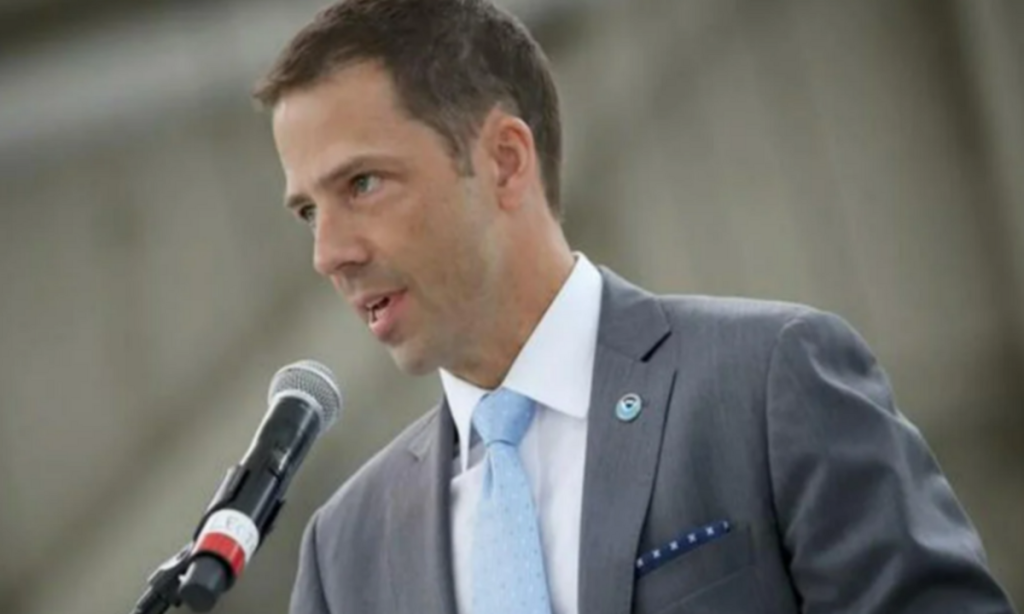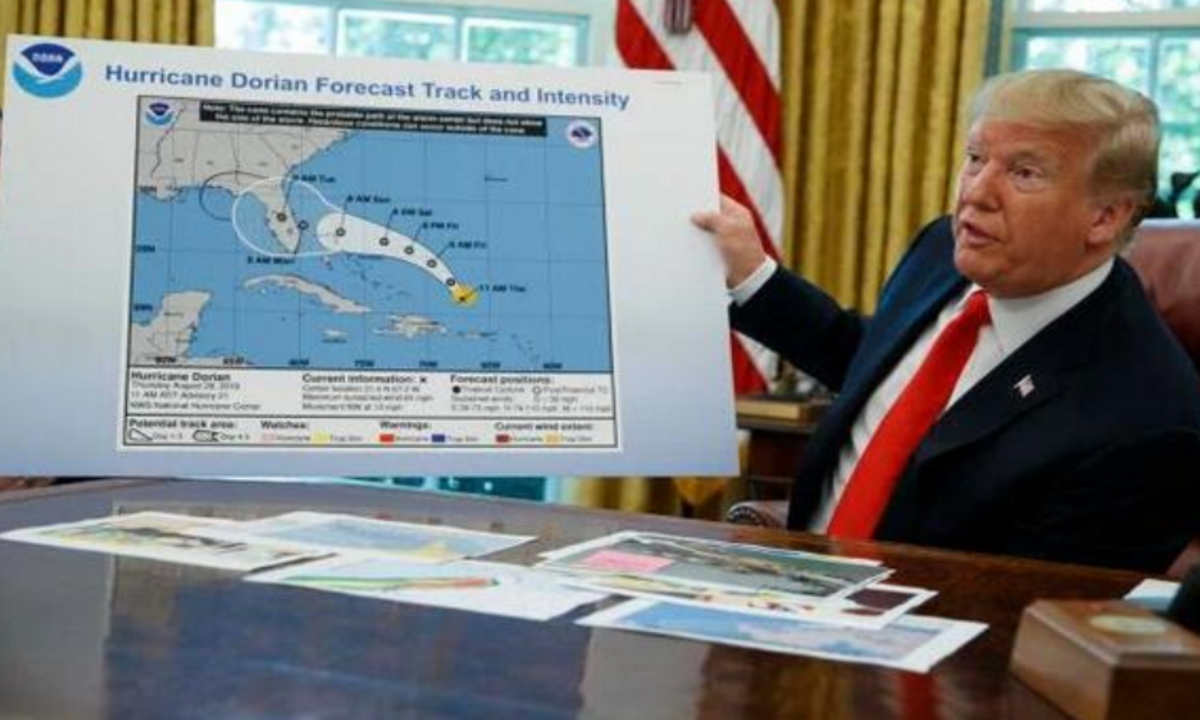A former top scientist at the National Oceanic and Atmospheric Administration (NOAA) has issued a strong warning about the risks of politicizing science and weather forecasting.
Craig McLean, who served as acting chief scientist of NOAA during President Donald Trump’s first term, said he and many other scientists fear a return of political interference if Trump is re-elected.
McLean’s concerns are rooted in an infamous 2019 incident known as “Sharpie-gate”, where the Trump administration altered an official hurricane forecast. McLean argues that misleading the public about weather predictions can have dangerous consequences, as millions of people rely on NOAA’s forecasts to prepare for hurricanes, wildfires, and other natural disasters.
What Was “Sharpie-gate”?
In September 2019, as Hurricane Dorian approached the U.S., Trump incorrectly tweeted that Alabama was in the storm’s path. However, NOAA’s own forecasters quickly corrected him, stating that Alabama would not be affected.
Rather than admit a mistake, Trump held up an altered hurricane map, where a black marker—presumably a Sharpie—had been used to extend the storm’s path into Alabama.
This led to major controversy, as it suggested that official NOAA forecasts had been manipulated to match Trump’s incorrect statement. The incident quickly became known as “Sharpie-gate”.
Three days later, NOAA’s leadership issued an official statement backing Trump’s claims and criticizing the agency’s own forecasters. McLean, who was acting chief scientist at the time, said this move was a clear case of political interference.
“To have a political process unplug the public’s trust, that got me stirred. That gave me a sense of rage,” McLean said.
Ethics Violations and Political Pressure
Following the incident, McLean pushed for investigations into NOAA’s handling of the situation. Reports from the U.S. Department of Commerce Office of Inspector General and the National Academy of Public Administration later confirmed that:
The statement backing Trump was “driven by external political pressure” from the White House.
Then-acting NOAA head Neil Jacobs violated the agency’s Code of Ethics.
The decision to support Trump’s altered map was made under “intense pressure” from the Trump administration.
Despite this, McLean said NOAA’s leadership refused to acknowledge the investigation’s findings. Shortly after, he was removed from his position and later retired.
Why Scientists Are Worried Now
McLean and other scientists fear that NOAA could face even more political interference if Trump wins another term.
One key concern is Project 2025, a conservative policy blueprint supported by Trump allies that proposes breaking up NOAA. The plan claims that NOAA is part of the “climate change alarm industry” and suggests shifting its responsibilities to other agencies.
McLean warns that dismantling NOAA could put millions of lives at risk, as the agency is responsible for:
Issuing hurricane, tornado, and flood warnings.
Tracking climate change and its impacts.
Helping farmers predict weather patterns for crops.
“People’s lives are on the line,” McLean said. “We are required by law to give the full picture, and what we are seeing is very alarming.”
Trump’s Nominee for NOAA Faces Scrutiny
Adding to the controversy, Trump has nominated Neil Jacobs—the same official who was involved in “Sharpie-gate”—to lead NOAA again.
Jacobs, who was acting NOAA administrator in 2019, was found to have violated ethics rules by supporting Trump’s altered hurricane forecast. Some scientists worry he could allow more political interference in NOAA’s work.
During a recent nomination hearing, Jacobs said he felt pressured to release a statement supporting Trump, even though he knew the forecast had not included Alabama.
“In my view, I could make the statement more accurate, but the Department would issue something anyway,” Jacobs said in an investigation report.
NOAA has declined to comment on the nomination, stating that it does not interact with nominees until they are confirmed.
What Happens Next?
The debate over NOAA’s future is expected to continue as the 2024 election approaches.
If Trump wins and follows through on plans to restructure NOAA or reduce its independence, scientists warn that the integrity of weather forecasting could be at risk.
For now, scientists like McLean are speaking out, hoping to protect NOAA from future political influence.
Conclusion
The “Sharpie-gate” scandal was more than just a political controversy—it highlighted the dangers of manipulating science for political gain.
As the discussion around NOAA’s future intensifies, the question remains: Will the agency be allowed to operate based on science, or will political influence dictate its forecasts?
The answer could have serious consequences for millions of Americans who rely on NOAA’s predictions to stay safe during natural disasters.
Disclaimer—Our team has checked this article to ensure its accuracy and eliminate any misinformation. We are committed to providing clear and reliable information for our readers.


